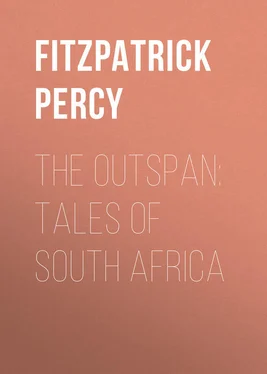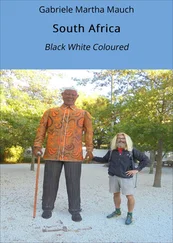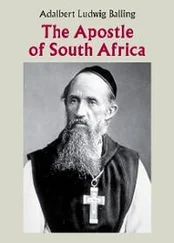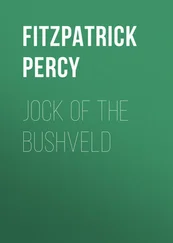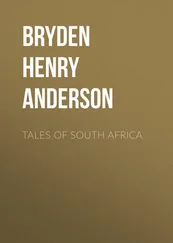Percy Fitzpatrick - The Outspan - Tales of South Africa
Здесь есть возможность читать онлайн «Percy Fitzpatrick - The Outspan - Tales of South Africa» — ознакомительный отрывок электронной книги совершенно бесплатно, а после прочтения отрывка купить полную версию. В некоторых случаях можно слушать аудио, скачать через торрент в формате fb2 и присутствует краткое содержание. Жанр: foreign_antique, foreign_prose, short_story, на английском языке. Описание произведения, (предисловие) а так же отзывы посетителей доступны на портале библиотеки ЛибКат.
- Название:The Outspan: Tales of South Africa
- Автор:
- Жанр:
- Год:неизвестен
- ISBN:нет данных
- Рейтинг книги:3 / 5. Голосов: 1
-
Избранное:Добавить в избранное
- Отзывы:
-
Ваша оценка:
- 60
- 1
- 2
- 3
- 4
- 5
The Outspan: Tales of South Africa: краткое содержание, описание и аннотация
Предлагаем к чтению аннотацию, описание, краткое содержание или предисловие (зависит от того, что написал сам автор книги «The Outspan: Tales of South Africa»). Если вы не нашли необходимую информацию о книге — напишите в комментариях, мы постараемся отыскать её.
The Outspan: Tales of South Africa — читать онлайн ознакомительный отрывок
Ниже представлен текст книги, разбитый по страницам. Система сохранения места последней прочитанной страницы, позволяет с удобством читать онлайн бесплатно книгу «The Outspan: Tales of South Africa», без необходимости каждый раз заново искать на чём Вы остановились. Поставьте закладку, и сможете в любой момент перейти на страницу, на которой закончили чтение.
Интервал:
Закладка:
Among transport-riders the condition of the Berg – as the spurs of the long Drakensberg range of mountains are called colloquially – is always a fruitful topic of conversation. The Berg at Spitz Kop is worse than at any other point, I believe, and Soltké exhibited a growing interest in this much-discussed feature of the road. His enthusiastic nature led him here into all sorts of speculations about it, which were highly amusing to us; and the Judge egged poor Soltké on and crammed him so that he undertook in our interest to devise some method for ascending this awful Berg whereby the then terrible risks to life and property would be minimised, if not entirely removed. The position, as Key explained it, was this: There was a long, steep hill to be surmounted, the grade of which varied between 30 degrees and vertical, but the crowning difficulty lay in the “shoot.” Here it was an open question whether the hill did not actually overhang; so steep was it, in fact, that it was not an uncommon occurrence for the front oxen to slip as they gained the summit, and fall back into the waggon, possibly killing both leader and driver, and doing infinite damage to the loads. Soltké faced this problem brimful of confidence in the subject and himself. After hours of keen discussion and diligent experiments, Soltké produced his plan. It was a system of endless rope on guides and pulleys, so arranged that by a top anchorage on the summit of this hill both oxen and driver would be secure. Soltké was triumphant, but Key extricated himself temporarily by pointing out that, as we had not enough rope to try the scheme, we would have to take the old roundabout road and leave the “shoot” for the next trip.
The joking with Soltké; as I have said, at times degenerated into common horseplay, and this led to the only unpleasantness we had. The younger Mackay – Robbie – was a quiet, humorous, and most gentle-natured fellow, an immense favourite with everybody.
One night we were all standing round the fire, when something occurred which nobody ever seemed able to explain. Soltké had mislaid his pipe, and, thinking he had seen Robbie take it, asked him for it back. Robbie denied all knowledge, and Soltké, deeming it but another practical joke, said, “I saw you taking it, you – ” using a term which he, poor chap, had picked up without knowing the meaning, a term which among white men never passes unnoticed. Robbie’s Scotch blood was aflame, and before one of us could stir, before he himself could think of the allowances to be made, before the word was well said, a heavy right-hander across the mouth dropped Soltké back against the waggon. Blank amazement and something like consternation marked every face, but none was so utterly taken aback as poor Soltké, who would have suffered anything rather than inflict pain upon a fellow-being. He only said, “Robbie, what haf I say? I do not understand,” and, looking white and miserable, walked quietly off to his blankets and turned in. To us it was as though a girl, a child, had been struck, and no one felt this more than Robbie himself, as soon as he saw that the insult was not intentional. The look on Soltké’s face was that of a stricken woman, a look of dull, unmerited pain. He was not cowed – just dazed and hurt, but inexpressibly hurt. You will see men blink and shuffle under that look in a woman’s face. You will see a master quail before it in a servant. You will see White go down before it in Black; for it is God’s own weapon in the hands of helpless right. As long as I live I shall remember that look. I felt as though I had done it!
We trekked as usual next morning at about three o’clock, and it must have been some time in the dark hours of the early trek that Bobbie spoke to Soltké. Whatever it was he said, it relieved the awkwardness, and restored Soltké to something of his old self; but he was never quite the same again, and for some days we did not get over the look in his eyes and the feeling of guiltiness it left in us.
Robbie did not speak of that early morning scene, but later in the day remarked incontinently:
“By God! he is white, is Soltké – white all through.”
Soltké kept a diary, and kept it with the most marvellous fidelity and unflagging industry, and he also learned to shoot, and shot cockyolly birds occasionally, and was pleased to know their sporting and scientific names. There is a sort of bastard cockatoo in those parts which is commonly known as the “Go way” bird, on account of its cry, which closely resembles these words, and of a habit it is supposed to have of warning game of the approach of man. In Soltké’s diary there should be an elaborate essay on the ancestry and personal habits of this bird, and the wonderful traditions of its family. He took these things down faithfully and laboriously from the Judge’s own lips. The Judge had a copious mythology. Poor Soltké tried to stuff some of his dicky-birds, labelling them with such names as Key could always supply at a moment’s notice. The result was unpleasant, as Soltké took to bestowing these ill-preserved relics in the side-pockets of the tents, in the waggon-boxes, and in a dozen other unlikely spots. It was only now and then that we could actually find them; but there was a constant suggestion of their proximity, nevertheless.
Конец ознакомительного фрагмента.
Текст предоставлен ООО «ЛитРес».
Прочитайте эту книгу целиком, купив полную легальную версию на ЛитРес.
Безопасно оплатить книгу можно банковской картой Visa, MasterCard, Maestro, со счета мобильного телефона, с платежного терминала, в салоне МТС или Связной, через PayPal, WebMoney, Яндекс.Деньги, QIWI Кошелек, бонусными картами или другим удобным Вам способом.
Интервал:
Закладка:
Похожие книги на «The Outspan: Tales of South Africa»
Представляем Вашему вниманию похожие книги на «The Outspan: Tales of South Africa» списком для выбора. Мы отобрали схожую по названию и смыслу литературу в надежде предоставить читателям больше вариантов отыскать новые, интересные, ещё непрочитанные произведения.
Обсуждение, отзывы о книге «The Outspan: Tales of South Africa» и просто собственные мнения читателей. Оставьте ваши комментарии, напишите, что Вы думаете о произведении, его смысле или главных героях. Укажите что конкретно понравилось, а что нет, и почему Вы так считаете.
